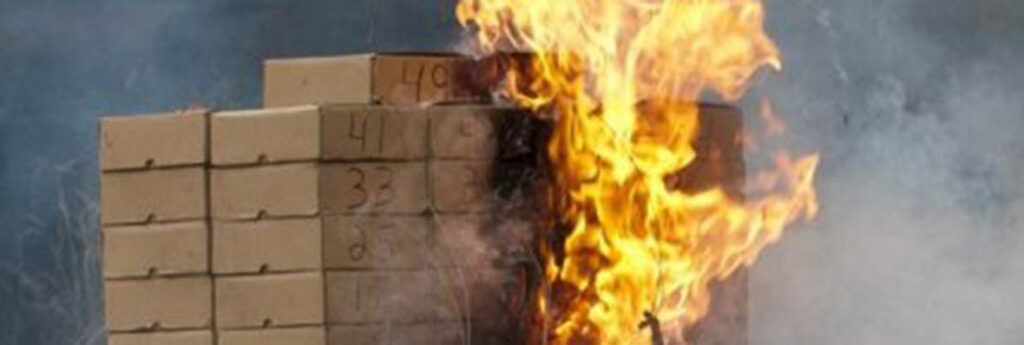The National Transportation Safety Board is recommending a loophole that allows some lithium-ion batteries to taken on airplanes be closed, citing insufficient safety precautions. The recommendation comes after batteries were flown from Florida to Toronto by FedEx. The batteries erupted in flames on the ground, destroying a delivery truck.
The agency says that had the batteries caught fire while in the air, they could have caused the plane to crash.
The NTSB wants the US Pipeline and Hazardous Materials Safety Administration to seek changes in international regulations that let companies transport prototype or low-production batteries without safety tests required of larger battery shipments.
Differences in air pressure, shaking or other movement in flight can cause short circuits in the batteries, leading to potential fires.
The administration in a prepared statement said that it will review the recommendation.
“The NTSB is concerned that similar accidents involving low-production or prototype special permitted lithium-ion batteries could occur on an airplane during transport, potentially leading to the loss of the airplane and its crew, and catastrophic property damage on the ground,” the agency wrote in a report on the fire.
The board has authority to investigate transportation accidents but can only make recommendations and has no regulatory powers.
In this case, the board joined with Canadian authorities to investigate the fire, which took place on June 3, 2016.
Four batteries in fiberboard boxes were shipped from Braille Battery Inc. of Sarasota, Florida, by air to Indianapolis and on to Toronto. The fire happened about 10 hours after the batteries were taken from a cargo plane at Toronto’s airport, according to the report.
Lithium-ion batteries are classified as hazardous materials and when shipped by air, fall under US regulations and those from the International Civil Aviation Organization.
The report said Braille’s packaging didn’t meet international standards, and the company could not produce records showing it did required testing of batteries for different pressures, vibrations, and temperatures, or for short circuits or crushing force. Had the tests been done, the batteries likely would have failed to meet those standards, the NTSB said.
The FAA sought a US $1.1 million civil penalty against Braille Battery in 2017 and settled for US $235,000 in 2018 based on the company’s ability to pay, the agency said.
During the investigation, the NTSB found what it said was a gap in international and US regulations. It said Braille could have shipped the four batteries under an exemption for prototype or low-production batteries.
Under an exemption, batteries can be shipped while meeting only a short-circuit test, not the rest of the tests required under regulations. Braille did not seek the exemption, but the NTSB determined that short-circuit tests “would not have been sufficient to show that the batteries met all of the requirements,” of the full regulations.
The NTSB recommended that the Pipeline and Hazardous Materials Safety administration propose to international officials that exemptions for transporting the batteries be eliminated.

